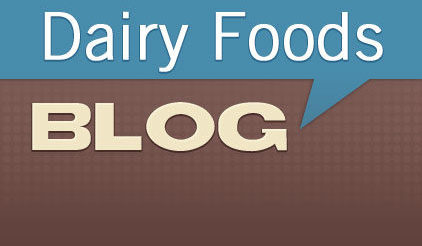Creating sustainable nutritional value through seed-to-table innovation

In so many ways, milk has been just ripe for the taking when it comes to innovation. Fluid milk sales have been on the decline for decades, fueled largely by a boost in the development and availability of alternative offerings (which have taken direct aim at cow’s milk) and an overall inundation of food and beverage choices in general. The universe of drinkable nutrition and refreshment was exploding and it — admittedly — took a while for us dairy farmers to catch on.
But caught on we sure have! Fairlife’s our own contribution to the current dairy-powered movement meant to make milk matter again by highlighting the natural nutrition and vitality that milk brings to the table. The innovation of nature’s superfood is well under way and seeing tremendous growth.
Like-minded, forward-thinking dairy producers and processors are actively putting their best hooves forward to showcase milk’s goodness, and these progressive creations are paying off. And it doesn’t hurt that consumers are becoming increasingly more aware of the fact that the alternative “milks” can’t compete with dairy when it comes to nutrition and taste. All in all, it’s a no-brainer: Innovation in the dairy aisle is proving to be a great example of how dairy farmers are thinking ahead in regard to making this industry more relevant and trustworthy to consumers everywhere.
But wait. There’s more … A LOT more …
What I REALLY love about our sector of the agricultural community is that in addition to working hard to make advancements in new product development, we’re actively thinking through how the entire journey from seed to table can be even better as well. Alive and well in the dairy industry, a passionate interest in innovative technology on the farm level has contributed to higher milk quality, better cow comfort and health, and dramatic changes in environmental care. So many new approaches to responsible farming are being hypothesized, discovered and tested every day, giving consumers even more reasons to believe in the power of dairy.
Some of that cool work being done is aimed at the goal of zero-carbon-footprint dairy farms. Want less methane production from cows? Why not start from within?
Instead of just focusing on how to capture or contain expressed methane once it’s out there, some incredible work is happening to develop digestive aids that will reduce cow belching by up to 40%. That’s HUGE.
And continuing advancements in and availability of anaerobic digestion technology means that the future will see more and more dairy farms of all sizes converting cow manure into power, a tactic that not only makes for more environmentally friendly farming, but makes the industry a prominent player in the renewable energy space.
Another area where dairy farmers are ahead of the game is in automation and robotics. Voluntary milking stations are starting to pop up on dairy farms all over the world, and farmers are realizing and enjoying the benefits. Not only do the efficiencies associated with robotic milking parlors contribute to overall sustainability efforts, but their integrated data collection allows for detailed real-time milk quality analysis, as well as for recording cow activity, milk production and rumination information. Information being the key to proactively managing a healthy herd, this innovation alone is a real game changer and something we’ll continue to see more and more of in the coming years.
These are just a few examples of the holistic approach to innovation going on in dairy farming across the country. From robotics to renewable energy to epigenetics to precision agriculture to microbiome exploration to consumer-centric product development, the list of areas where agricultural science and innovative technology are being employed goes on and on.
And the importance of innovation extends beyond the dairy landscape and into the larger food and beverage space as well. We’ve learned the importance of working cross-functionally, across industries and within our own, to stay ahead of the curve. Our involvement in forward-thinking collaborative organizations — for instance, the Chicagoland Food and Beverage Network — and our industrywide alignment are examples of how collaboration can fuel innovation and, therefore, add true value to our customers.
When the term “value-added dairy” not only refers to the finished, packaged product, but also describes the passionate innovation, hard work and honest care that goes into creating sustainable nutrition, that’s a huge win for the consumer, the processor and the farmer.
